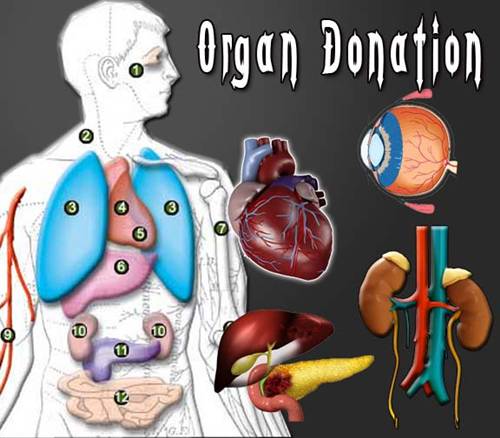
Scottish ministers are to introduce a new system of organ donations based on presumed consent in an effort to increase life-saving organ transplants.
Ministers in Edinburgh announced plans on Wednesday to introduce a “soft opt-out” system, where patients are assumed to agree to donate useful organs unless their families strongly object.
The change of policy follows the introduction in Wales of a presumed consent system in December 2015, which led to a rise in organ donations and an increase in the number of families agreeing to donations.
Last year there were 39 organs transplanted in Wales using its deemed consent system out of 160 organ transplants. Only 6% of people opted out of the system.
Aileen Campbell, the Scottish health minister, said recent campaigns and work with patients’ families had already led to an increase of 146% in the number of donation since 2007. This reform would improve the rate further.
“We should not forget that organ donation is a gift, which can only occur as a result of tragic circumstances and every donor and their family has made a selfless decision which has enabled others to live,” she said.
“We need to continue doing what we can in order to help reduce the numbers of people in Scotland waiting for transplants. Moving to an opt-out system of organ and tissue donation will be part of the long-term culture change in attitudes to encourage people to support donation.”
Earlier efforts to introduce a soft opt-out system in Scotland in a Labour MSPs’ private member’s bill were rejected after a majority of Scottish National party, Tory and Liberal Democrat MSPs voted it down, in a political dispute over Labour’s tactics during the vote.
The Scottish government’s decision to follow suit will increase pressure on ministers in London and possibly in Northern Ireland to introduce similar reforms. The British Medical Association, which represents the UK’s doctors, has been campaigning for deemed consent across the UK.
In February, the BMA said the soft opt-out system was supported by 65% of British adults. But it found that although 66% would donate their organs at death, only 39% had signed the organ donor register.
Scottish ministers have not yet set a target date for introducing the reforms, but plan to do so before the next Holyrood election in May 2021. Scotland has the highest rate of donors per head of population among the UK countries, at 25.5 donors for every million.
A Scottish government spokeswoman said: “We need to take the time to get this right. It is a very sensitive issue. We will be looking at other countries which have also introduced the system to see how they made it successful.”
Dr Peter Bennie, the chair of BMA Scotland, said he was pleased ministers in Edinburgh had listened to calls for the reform.
“The whole transplant community has worked tremendously hard to increase donation rates but we believe that more can be done,” he said. “As doctors, it’s difficult to see our patients suffering and dying when their lives could be saved or dramatically improved by a transplant.
“We believe that genuine choice over organ donation can be facilitated through a soft opt-out system. If properly implemented, with adequate resources and staff, and backed up by a high-profile campaign, an opt-out system could save or transform people’s lives.”
Source :-The Guardian

Leave a Reply